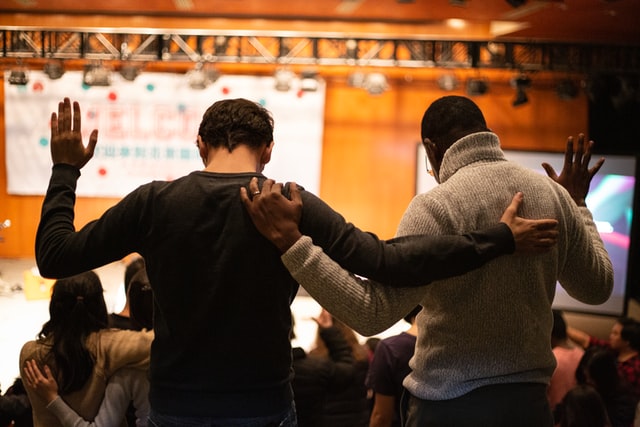It’s been a while since our last blog post. Over the last few weeks, I’ve been meditating on the state of the ethnic church. Although top of my mind is my own church community, I recognize that this is true of many of the ethnic churches we have been a part of over my many years. There is even an aspect to this that applies to traditional churches more broadly. Today, let’s dive into this (warning, it’s going to take some time and words).
The beginning
Let me paint a word picture. At some time in the past there was a first large wave of immigration of one particular ethnicity (e.g. Indians in the 70s and 80s), who arrived here while in their early 20s from impoverished countries, to build a better life. They brought their faith with them, or perhaps encountered faith in Christ on these shores. Either way, they established ethnic churches who mirrored their own experiences back in their home countries. As with the Israelites in Babylon, they planted fields (figuratively speaking), they built houses, their sons and daughters married in this land. However, they didn’t seek the welfare of the cities they were planted in. Instead, they maintained a separation from the culture of the land, dictated partly by a different language (Malayalam), different dress and food, different customs (sometimes mixing the religious observances of their home countries), and partly by their affiliation to their homeland. Even missions and charitable activities involved sending resources back to their homelands. They supported their families back home, and helped them emigrate to the US.
The middle
Over time, they had children, these children grew, and assimilated into the new culture. These sons and daughters spoke English, helped translate for their parents and acted as caretakers in many ways. They are a generation that struggles with their identity, the product of two very different and strong cultures while not belonging fully to either. Too ethnic (Indian) for the American culture, while being too American for their home culture. But this also extends into their experience of church. Their ethnic churches steeped in the culture of their homelands is uncomfortable for them, requiring they be ethnic on Sundays, while being American on the weekdays. They often grew up with a semblance of head knowledge of Christ, sitting through prayer meetings and Sunday school. They often found true faith on their own, away from their homes where they truly encountered Christ. Those that do are often passionate about their faith.
More of the middle
This second generation was perpetually seen as “youth”, even as some approached the age their fathers were, when they first came to the country and established churches and built families. In the eyes of the elders, this generation would always be the “youth”. As a result, some of this generation stepped away entirely from the faith once they left home for college and work life. Some moved to American churches. Those that pursued their calling as pastors and ministers were not welcomed back into their home church culture because they were often seen as bringing ideas that were not compatible with the culture of the ethnic church. These young ministers left the ethnic church ministry to minister in American churches. Over time, this generation started to see America as their home, and started to seek the welfare of the land, and the cities they settled in, breaking away from the homeland centric views of their parents. During this entire middle period, the church never addressed the situation, because new waves of immigration filled the pews, so it was not seen as an existential threat.
The end, or where we are now
That brings us to the present. For the reasons we noted, many of the second generation have left and most ethnic churches are graying. Many of the ethnic churches who were desiring new and bigger buildings in the 90s, are now sparsely attended, with the majority either nearing, or in, retirement. This is especially a problem for churches in areas where there is outward migration (e.g. New York, California etc). The elders of these churches are decamping for Texas and Florida. But the same will happen regardless of location.
Its not just an Indian thing!
Although I am of Indian origin, the same pattern is true of all ethnic churches I have visited. Chinese churches, Korean churches, Nigerian churches. If you are from an ethnic church, most likely some of this will resonate with you. Most of the world immigration into the US is declining from the highs in the 90s, so the ethnic churches are all seeing the reality of this issue that they’ve ignored for far too long. Age is respected in most ethnic cultures, so elders hold on to their posts for life. The passing of the torch from the older generation to the younger, simply has not happened. The “youth” service is populated mostly of folks who are between 30 and 50 years old! Even where church boards are filled the younger members, they feel beholden to the elders who can veto or circumvent any progressive ideas.
So should the ethnic church simply give up?
Is there a place for the ethnic church or is it simply a time for the ethnic church to dwindle? Isn’t it sufficient that the young people are still attending church? What does it matter if it is an American church or an ethnic church?
To a certain level, this is true. Our culture is Christ, first and foremost. I rejoice for those of our brothers and sisters who remain within the church no matter what the name of that church. However, I do still believe the ethnic church has a place.
So then, why even have an ethnic church?
There will always be a place for those that desire to worship the Lord in their own language, in their own customs of worship. The only thing I would say is that should be subordinate to the principal commission of the Big C Church.
That practically looks like a church where the principal services are in English, because we are planted in a neighborhood to reach those that we are adjacent to. We are here for a reason, and that reason is to reach souls for Christ. The ethnic language services should continue to minister to those who desire it, but we should not forget why we are Christians. Ultimately it is not for our comfort, but for FOR HIS GLORY.
God made each culture different and loves each people group in the world. I believe that alone indicates that God is glorified when we worship him in our own ways. We should constantly examine our practices to ensure we are in line with the Gospel and not glorifying any cultural element above God (e.g. bringing religious rites of our home countries religions into our own worship practices), but beyond that, God has given us freedom in worship!
So then how?
That’s a Malaysian saying I heard so often when I lived there. So then, how? I believe the ethnic church is placed here for such a time as this. Young people in Gen Z are searching for a more “authentic” worship experience. They have been jaded by the sound, fog and light machines and are authentically seeking God. Ethnic churches, however, are seen as “more authentic”, for many cultural reasons. So it is our calling to minister to these wounded, bruised souls, and show them the Jesus of the Bible.
That requires a radical rethink of the ethnic church, placing outreach to a people that may not look like, think like or sound like them. It requires allowing the second generation leaders to take their place at the helm of the church while ensuring Christ remains the head, and respecting our elders. It requires subordinating the home language services to a second service, and accepting that gracefully. This change cannot be forced on the elders or anyone else, it must be voluntary even as our own faith is voluntary.
Ok, wrap this up..
Thanks for staying with me. I’d love to connect with you and see if we can’t build bridges between ethnic churches to help each other and grow together. I believe that God has created us uniquely for a reason and a purpose, so let’s lean into that while glorifying God in all our actions.

